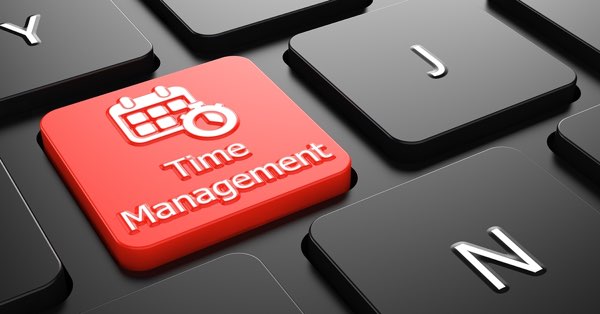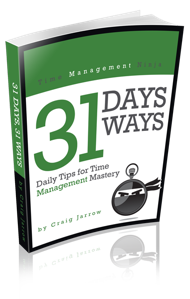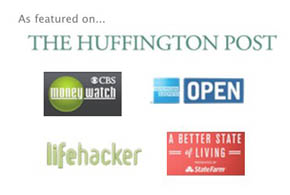Would you like to earn more or less for the time you spend working?
For several years, I was a freelance journalist living off various writing commissions. Although some commissions paid by the hour, I was still expected to complete them within a set period. For others, I was only paid for getting the job done. This type of freelance work meant I earned less for my time if I spent twenty hours on a commission that should have only taken ten.
I learned the hard way that making a living means finishing freelance projects on time. Even if you aren’t a freelancer, you still have deadlines. Here are three simple but effective time-management tips will help you manage your time and become more productive.
1. Make Friends With Your Calendar
The calendar is the productive freelancer’s best friend. It should be yours too. Get deadlines and appointments out of your head and into Google calendar, Outlook or some other tool you trust.
At the end of every working week, spend twenty minutes reviewing your calendar. Check what’s coming up for the next seven days and what happened over the previous seven days. While reviewing the previous seven days, ask questions like:
- What took up the most of my time last week?
- Are these activities likely to reoccur?
- What resources do I need to complete these activities faster?
While reviewing the coming week, consider:
- What do I need to prioritize?
- Am I likely to meet or miss my imminent deadlines?
- What’s my most important task this week?
The review is your chance to add any missing activities to you calendar and to identify commitments that you need to renegotiate. This will also help you plan for future projects secure in the knowledge that you have the resources and time to complete them.
2. Guard Your Best Self
You undoubtedly have lots other responsibilities related to your commitments. For example, mine include:
- Preparing invoices
- Making pitches
- Managing email
Your best self is the time of the day when you’re fresh and most productive. These other tasks are important, but you can accomplish them during the hours of the day when you’re tired. Depending on your working environment you can guard you best self by:
- Using a proven productivity system like the Pomodoro technique for your most important tasks of the day
- Disconnecting from social media, email and even internet
- Letting your colleagues know what you’re working on and when they can expect to hear from you
This strategy will succeed if you understand the rhythms of your day and if you attend to your other responsibilities after you’ve completed your most important task.
3. Track, Track And Track Again
Freelance journalists learn how to write fast. They need to eat. They need to sleep. And they need to get working on their next commission. I spent almost an entire week on my first 3,000 plus word feature article for a national newspaper. I carried out long, multiple interviews and spent hours researching the topic online and offline.
I probably shouldn’t be telling you this but much of this research and many of these interviews were unnecessary. So, I started tracking how I spent my time, and I used this self-knowledge to speed up.
You can track how you’re spending time on your projects by:
- Setting a timer on your computer or phone when you’re working on a project
- Making a brief note in a professional journal or log at the end of the day of how and where you spent your time
- Reviewing your log, journal or timesheet at least once a week to see what’s holding you back
Tracking your work may seem tedious at first, but it will help you figure out which projects are taking longer than others, how you can complete these projects quicker and even if you should accept projects like these in the future.
It will also make it easier to submit your invoices at the end of the month, and this self-knowledge will give you the confidence to negotiate a better rate from your next client.
Spending Your Reward
I’m not a freelance journalist anymore, but I’ve never forgotten the power of a deadline and the important of finishing projects within set time period. If you’re having trouble managing how you spend your time on projects, review your calendar and commitments, do your most important work when you’re productive, and track what’s working and what’s causing you problems.
If you succeed, you’ll have time to make even more money by working on new commissions. Or you could take break. How you spend your hard-earned time is your choice.
Question: What tips do you have for those who struggle with time management? You can leave a comment by clicking here.
 I am the author of Time Management Ninja and help individuals and companies reclaim their time to be more productive. As well, I am the author of the book
I am the author of Time Management Ninja and help individuals and companies reclaim their time to be more productive. As well, I am the author of the book 

Thanks Bryan, for these excellent tips. One question: how do you keep your daily log or journal?
My experience is, it takes to much energy and time in coparison to the beniftits it brings.
Do you have a simple, usefull tool to track your daily activities and the time you spend?
Hi Robert,
I record my log in a digital journal (but I have experimented with spread sheets). Yes it takes a little bit of time to keep this up to date but if it’s taking more time than the benefits it brings, perhaps you’re recording too much information. I only write a one or two line entry.
Hey Bryan, Great to see you here!
I appreciate what you say about tracking. I have tried using Rescuetime, but haven’t looked at the metrics too carefully. I should start doing that.
Hi Peter,
I love metrics. They help me identify what I should stop working on and what I should do more of.
KatzAbosch is happy to declare our site has undergone a renovation October 2014 efficient! The corporation has enacted fresh attempts to implement a sleek solution and much more user-friendly internet artistic. Fresh photography provides a team environment where all divisions connect and collaborate on current and fresh client engagements. Business valuations
Great article Bryan. I’m definitely still looking for my ‘best self’ – with a schedule that varies wildly, it’s really hard to find when I’m truly at my best. I’ll keep working on it! 🙂
Hi Ellen, I’m glad you found the post helpful. Thanks for sharing.
Thanks for the tips, Bryan! I really like how you worded step 2, “Guard your best self.” I like that vibe of almost protecting ourselves and our precious hours of fresh productivity. Nice insights ~ thanks! 🙂
Time is more valuable than money. I try to remember that.
Good advice Bryan! Especially the tracking. Though I know better, I still fail to follow through on it. End of year resolution: Make tracking happen!
I fail all the time too. The exciting thing is 2015 is just around the corner. And that means we can fix our mistakes.
Definitely agree with time tracking. Been using Time Doctor to track me and my team’s work time. It’s really true that you cannot improve on something that you cannot measure. This is basically one of the important reasons why time tracking is essential. You cannot improve your time management if in the first place you do not know where time is spent.
I haven’t used Time Doctor, I’ll check it out.
Have you used Time Rescue at any point? If so which do you think is best and why?
Are you referring to RescueTime, Shawn? Unfortunately, haven’t tried it yet. Time Doctor works well for us already.
My gosh! Yes that is what I meant. I’ll have to check Time Doctor out.
“The calendar is the productive freelancer’s best friend. It should be yours too. Get deadlines and appointments out of your head and into Google calendar, Outlook or some other tool you trust.”
– Too many people rely on the faulty nature of our short and long term memories. While some people, through a consistent and extra personal system, have developed strong neural pathways in the regions of the brain related to memories, the majority of us have not. How the majority keep going about their lives relying on something as faulty as their own memory is…dangerous for productivity to say the least.
About guarding yourself…
I’ve started guarding my time in the manner you would if time was tangible like those stacks of cash held in your savings, investments, or just plain under the mattress. I know that I’m at my most focused in the wee hours of the morning, where there are little distractions to interrupt my state of flow, and getting into that state of intense flow helps build the momentum for the rest of my day.
One of my goals for 2015 is to get up earlier to write. This is when I’m at my best self.
You can do it! As cliché as it sounds it’ll be hard in the beginning but it becomes second nature quickly after awhile. I certainly don’t regret getting up in the wee hours of the morning but the most important aspect is to follow through…every.single.day — weekends included.
Love the time tracking suggestion! that is something that has made a huge difference for me. In case it’s helpful to others: I used the free trial of Chrometa and that opened my eyes to how often I switch between tasks. I now use Toggl and the reports are good for seeing how much time went to what. (assuming you manage to log your activities, which you have to do manually although there are browser extensions to make it easier).
Guarding your best self is another terrific suggestion, I wish someone had told me that earlier in life.
Hi Bryan,
I am very triggered in the journal keeping part and how to write a journal professionally. I found myself getting more attached by the article https://www.habitify.me/blog/ultimate-guide-to-start-a-journal because it is more detailed. It could be great if you can link your article to that one.
Thank you!